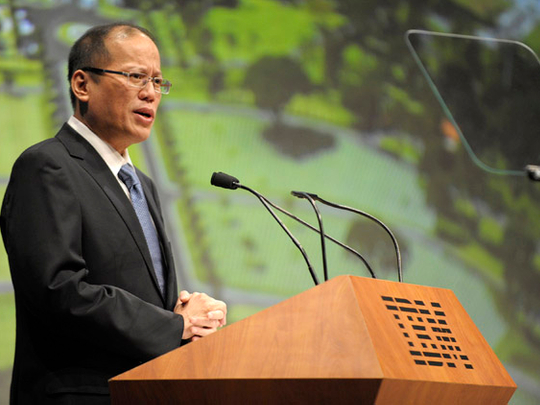
Manila: President Benigno Aquino on Wednesday said that a Philippine anti-cybercrime law is not aimed at restricting freedom of speech.
He said Filipinos need not fear being sent to jail “if they speak the truth.”
“Curbing the freedom of expression is not an aim of the law’s provision on online libel. But as responsible media practitioners, you are aware you have rights, but those rights also have limits, is that not the case?” Aquino asked journalists.
On Tuesday, the Supreme Court upheld the constitutionality of a provision in the country’s law against crimes committed through cyberspace, the Cybercrime Prevention Act of 2012.
The provision pertains to online libel or the act of slandering or destroying someone’s reputation through the use of Internet or other electronic media. Similarly, the Supreme Court also allowed two sections of the anti-cybercrime law that imposes higher punishment for people found guilty of libel.
It also upheld the legality of penalising those who aided or abetted the commission of cybercrimes including illegal access, illegal interception, data interference, system interference, cyber squatting, computer-related fraud, computer-related identity theft, and cybersex.
The anti-cybercrime measure was signed into law by Aquino in September 2012. However, its full implementation, particularly the areas concerning “libel” had been placed on hold after various groups expressed concerns that the new law will curtail freedom of expression.
The right to freedom of expression is necessary in a democracy, advocates said.
After Aquino signed the Anti-Cybercrime Prevention Law in 2012, the National Union of Journalists of the Philippines (NUJP) had said the Cybercrime Prevention Act “poses a threat not only against the media and other communicators but anyone in the general public who has access to a computer and the Internet.”
“The Cybercrime Prevention Act of 2012 could be used as a legal mantle to criminalise libel,” the press freedom watchdog said.
For its part, the Human Rights Watch had said the anti-cybercrime law could also impact on freedom of expression as much it aims to address cybercrime.
The New York-based watchdog said the Cybercrime Prevention Act provides authorities with “excessive and unchecked” powers that could stifle freedom of speech.
But in defending the Supreme Court’s verdict, Aquino argued freedom of expression, be it in the forum of cyberspace or otherwise, is not an absolute right.
He said those who exercise this right have responsibilities. He pointed out that what is aired in cyberspace is correct.
“It would not be fair if an inaccurate or wrong statement were repeated in various forms of media,” he said.
“If you know you speak the truth, why be worried about libel,” he added.
With the passage of the new law, Filipino cyberspace dwellers are expected to be more circumspect on what they post in the Internet and through social networking sites.
Before the law, cyberspace in the Philippines was a virtual free-for all forum with little regulation.











